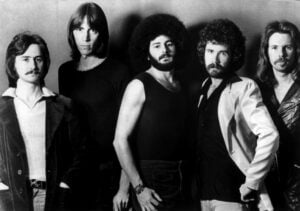10 Classic Rock Bands Who Came Back Stronger After a Hiatus

Brucetapes / YouTube
When rock bands take a break, fans often wonder if their favorite group will ever return with the same energy and passion. Sometimes, these hiatuses are much-needed pauses that result in a powerful comeback. Here are ten classic rock bands that returned to the music scene stronger than ever after a break.
1. The Eagles
After disbanding in 1980, The Eagles left fans longing for their harmonious rock sound. The band members went their separate ways to pursue solo projects, leaving fans uncertain about their future together. In 1994, they surprised everyone with their “Hell Freezes Over” tour, named after a comment by Don Henley about when they would reunite.
The tour was a massive success, featuring new songs and live renditions of their greatest hits. This return proved that The Eagles could still create magic on stage, and it led to more tours and new music. Fans old and new celebrated their comeback, thrilled to see that the band’s essence remained intact.
2. Fleetwood Mac
Fleetwood Mac has had a tumultuous history with numerous lineup changes and internal conflicts. After a particularly rocky period in the mid-80s, the band members decided to take a break and focus on their personal lives. The hiatus allowed them to heal and rekindle their creative spark.
In 1997, Fleetwood Mac reunited for a special live concert recorded for television, which became known as “The Dance.” This reunion was not just a flash in the pan; it reinvigorated the band and led to a successful tour along with new music. Fans were moved to see the classic lineup back together, performing with the same chemistry that launched them to stardom.
3. Aerosmith
Aerosmith faced a difficult period in the late 70s and early 80s due to substance abuse issues and internal differences. The band members needed a break to address their personal problems and rediscover their passion for music. After dealing with these challenges, they made a strong return in the mid-80s with the release of their album “Permanent Vacation.”
This album marked Aerosmith’s revitalization, offering a series of hits that resonated with old fans and attracted new ones. Their comeback was not just a brief spike in popularity but the start of a new chapter that saw continued success and solidified their legacy in rock music.
4. Bruce Springsteen & The E Street Band
Bruce Springsteen and The E Street Band are renowned for their dynamic performances and heartfelt rock anthems. However, in 1989, Springsteen decided to take a break from the band to explore solo endeavors. This hiatus allowed him to recharge and experiment with different musical styles.
In 1999, they reunited for the “Reunion Tour,” thrilling fans who had been eagerly waiting for their return. The tour was a phenomenal success, demonstrating that the band’s synergy was as potent as ever. This reunion solidified the bond between Springsteen and his bandmates, leading to more tours and albums that captured the spirit of their earlier work.
5. The Police
The Police were one of the most influential rock bands of the late 70s and early 80s but disbanded in 1986 amid growing tensions. Each member pursued solo careers, leaving fans to wonder if they would ever witness the trio’s unique sound again. After years apart, they surprised fans by reuniting in 2007 for a worldwide tour.
This reunion allowed a new generation of fans to experience their energetic live performances. The tour was a spectacular success, showing that their musical chemistry was still intact. Although they did not record new music, their triumphant return reminded everyone of what made them legendary in the first place.
6. Black Sabbath
Black Sabbath, often referred to as the pioneers of heavy metal, faced numerous lineup changes and issues that led to their break in the late 70s. The original members went their separate ways to explore different projects and musical directions. While the band continued with various configurations, fans longed for the classic lineup.
In 2011, Black Sabbath’s original members reunited, announcing both a tour and a new album. Their comeback album “13” in 2013 was well-received, and the tour was a massive hit, proving they hadn’t lost their edge. This reunion defied expectations and delivered the heavy, dark sound that fans cherished.
7. Genesis
Genesis started as a progressive rock band and evolved into a household name with a more pop-centric approach in the 80s. However, after a successful run, they decided to take a break in the mid-90s as members pursued other projects. Fans were left waiting for the magic to return.
In 2007, Genesis reunited for a tour, featuring many of their classic hits. The tour brought back the memories of their powerful performances and intricate musical arrangements. This successful reunion showed that Genesis still knew how to captivate an audience and delighted long-time fans.
8. Kiss
Known for their theatrical performances and iconic face paint, Kiss originally disbanded in 2000. However, their hiatus did not last long as demand for their electrifying stage presence remained high.
They returned with vigor, embarking on tours that included elaborate stage effects and fan-favorite songs. The reunion reaffirmed their status as one of the world’s most entertaining rock bands. Kiss continued to thrill audiences with their persona and music, showing no signs of slowing down despite their early break.
9. Journey
Journey enjoyed immense success in the 80s with their powerful anthems and memorable ballads. But the departure of lead singer Steve Perry in 1987 led to uncertainty about the band’s future. They continued with different singers but decided to take a break in the mid-90s.
Journey made a significant comeback when they found their new lead singer, Arnel Pineda, in 2007. His voice, remarkably similar to Perry’s, rejuvenated the band’s sound. The subsequent tours and new music received positive responses, proving that Journey could still strike a chord with fans old and new.
10. Blondie
Blondie was a defining band of the late 70s and early 80s with their unique blend of punk, new wave, and disco. Internal struggles and changing music trends led to their breakup in 1982. The band’s members pursued individual projects, and it seemed Blondie might be gone for good.
Much to the delight of fans, Blondie reunited in 1997, releasing the album “No Exit” in 1999. The album featured the hit single “Maria,” which topped charts worldwide. This successful comeback demonstrated that Blondie could still produce catchy, innovative music while maintaining their original charm.













